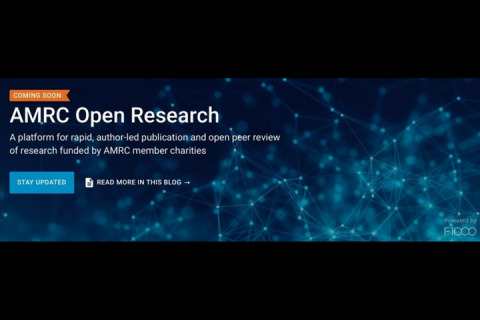We announce a new partnership with NC3Rs to launch a gateway that will maximise the impact of the 3Rs – replace, reduce or refine – technologies and approaches in animal research. In this guest blog, Vicky Robinson, Chief Executive of NCR3Rs, introduces the new NC3Rs gateway
Why is community action being considered as a means to reduce harmful alcohol use? Peter Anderson, discusses this in his research article, published on F1000Research. Here he explains how city based policies could help alleviate the problem and who they should target.
Rebecca Lawrence, Managing Director of F1000 announces our partnership with the Association of Medical Research Charities (AMRC) to provide a publication platform for 23 of their UK-based medical research charities.
A couple of our Faculty Members discuss William Kaelin’s opinion article, a piece that highlights the problematic trend that has crept into scientific publication and was F1000Prime’s top recommended article for six months running. They share their thoughts on what could be done to improve the future of scientific research.
Emily Hesketh, a postdoctoral fellow at the Wellcome Sanger Institute, discusses her research note published on F1000Research about a method to improve communication between specialists in interdisciplinary teams.
Kevin Darras, University of Goettingen, talks about his fieldwork in Berbak National Park, Indonesia, recording the dawn chorus to survey the bird communities in tropical peat swamp as reported in a Research Article published on F1000Research.
To mark World TB Day, we launch a collection that we hope will grow over the coming months to highlight the results of could help influence decisions taken by leaders during this year’s UN General Assembly. We also speak to one of the advisors for the collection – Helen Fletcher from London School of Hygiene and Tropical Medicine.
Anisa Rowhani-Farid and Adrian Barnett recently published the second version of their Research Article in which they compared data-sharing in two journals and whether badges had an effect on sharing. In this guest blog, Anisa Rowhani-Farid describes what motivated her in her work and the results of her research.
An Open Letter published by Pamela Kolopack, University of Toronto and James Lavery, Emory University, on Gates Open Research discussed issues around informed consent in field trials of genetically modified mosquitoes. The article was openly peer reviewed by Carolyn Neuhaus, The Hastings Centre, after publication. Last week we published the first part of this post in which James and Carolyn discussed topics raised in James’ article. This week they discuss open peer review, institutional review board s and mechanism of authorisation.
Liz Allen explains how researchers can submit their work directly from bioRxiv to F1000Research offering more choice and flexibility to authors in deciding when to set preprints to under invited peer review.














